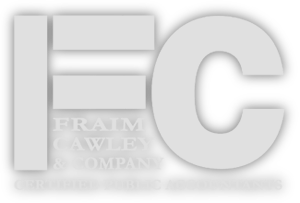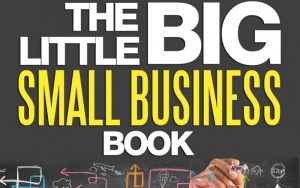“They used to tell me I was building a dream
With peace and glory ahead
Why should I be standing in line
Just waiting for bread?
Once I built a railroad, I made it run
Made it race against time
Once I built a railroad, now it’s done
Brother, can you spare a dime?”
–Bing Crosby
I’m rarely a fan of allowing fear to be the driving force in our decision making. There are of course exceptions when fear can spur us to positive action – forcing us to push ourselves past discomfort and to do things we would not do but for the fear of loss or failure. But more often, fear can paralyze us. It can stop us from taking risks and making positive changes in our lives. Instead of being a motivator for change, it becomes a roadblock to it.
That being said, some of us could probably use a bit of a fear “booster shot” to correct some of the bad finance habits that are cropping up again.
The 2008 recession was one of the scariest economic periods in recent memory. The US housing market collapsed, domestic car manufacturers were going broke, and major companies were going bankrupt or downsizing left and right. Small businesses failed at an alarming rate. The US economy was in shambles and the European economy wasn’t markedly better.
In response to this, many of us adopted Depression Era-type mindsets and changed our behaviors afterward. We spent less, saved more, kept cars and houses longer, and tried to limit/mitigate/eliminate debt. In short, we got smarter after we got hurt. For a while anyway.
But now just a little over a decade later and so many seem to have just sort of…forgotten. Consumer debt of all types is reaching all-time highs and mortgage balances continue to climb. Some of that is of course explained by inflation and the increasing cost of housing, but it doesn’t exactly reflect a financially careful thought process either. More and more of us are spending like the good times will never end and have very little buffer for when they inevitably do. Trips, cars, jewelry, electronics, gadgets, eating out all the time. And if we can’t pay cash, we just put it on the plastic.
And as the writer George Santayana famously said: “Those who do not learn from history are doomed to repeat it.”
Look, trying to pinpoint when exactly the next economic downturn is coming is a fool’s errand – and not one I’m trying to accomplish here. The next recession could come next week or could take years. But we’re in a 10-year economic expansion – arguably the longest in modern history. Recessions are inevitable – and based on historical averages we may just be overdue for at least a serious slowdown, and perhaps an actual recession.*
In reality recessions are normal. A recession simply means a period during which the overall economy is not growing, but is in fact contracting. The total of business/industrial production and trade activity falls for a period of time. There are mild recessions and severe ones, but as sure as the sun rises and sets, there are going to be recessions every so often. And during a recession smart businesses survive and dumb ones fail.
Again, this doesn’t mean we should sit in fear – just waiting for the recession Sword of Damocles to fall and stab us. There have been people calling for another recession since the last one ended and as a result have been missing out on tremendous growth during that time.
We should reinvest in our businesses, if we find great opportunities take them, make moves and take risks…but do so intelligently. And from a personal finance perspective, it may be a good time to reduce our spending and start squirreling away some money for when we find ourselves in less favorable conditions.
In a nutshell – be smart. Make sure your business is ready if things slow down. Review your investment portfolio with a “what if” view and ask for professional assistance in assessing risk. Build up your reserves and your assets. Pay down debt. AND DON’T SPEND YOUR MONEY ON SILLY OR FRIVOLOUS THINGS. (Or worse yet, don’t borrow to do so.) I’m not saying don’t enjoy your life and your success, to a sensible degree. But don’t be foolish about it either.
Some of the greatest financial opportunities occur during bad economic times. But the only ones who can take advantage of those opportunities are the ones who have made good decisions leading up to them. If we’re all out of money and swimming in debt, there’s nothing to work with when those golden opportunities arrive.
*Obviously this is a much more complex discussion than we can have in this short article. There are many, many factors that go into what makes for a recession and economists vary widely in their assessment of where we are at present. Arguments can be made both for and against a recession in the near term. The overriding point though is that we inevitably do experience down cycles and rough patches in business – whether they occur in the form of an actual recession or instead just slowdowns. So being ready and prepared – as discussed above – requires that we make some prudent plans and decisions during the good times, so as to be able to survive the tougher times, whenever and however they occur.
Any accounting, business, or tax advice contained in this communication, including attachments and enclosures, is not intended as a thorough, in-depth analysis of specific issues, nor a substitute for a formal opinion, nor is it sufficient to avoid tax-related penalties.




